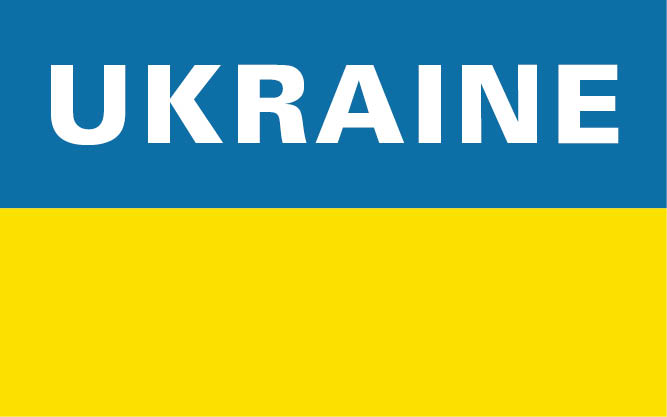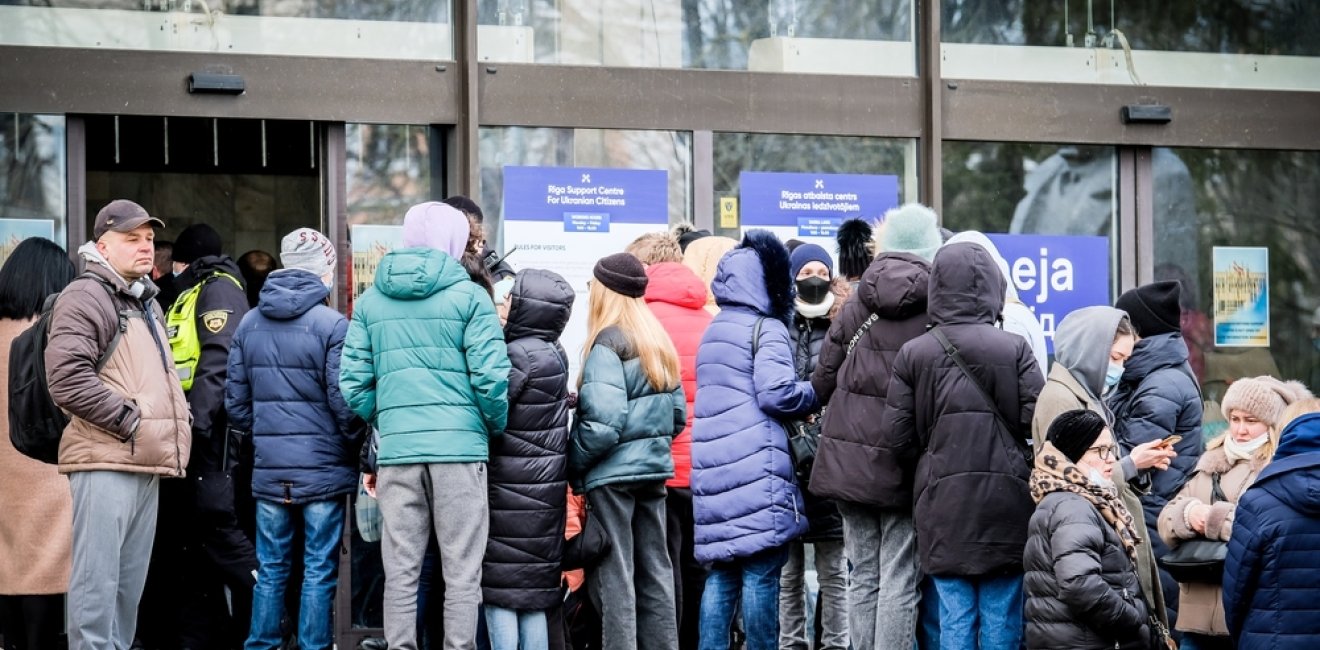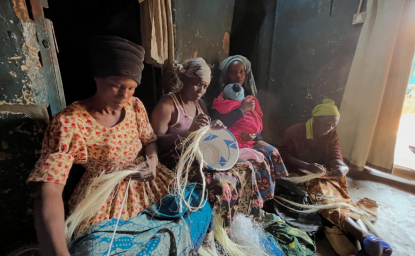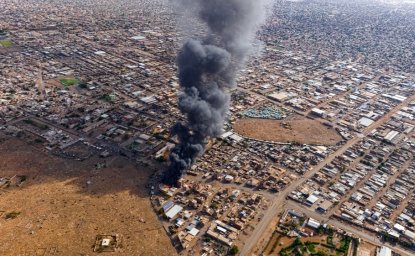Protection of individual freedom and rights is the cornerstone of a liberal democracy. However, the ideals and actual practice of modern liberal democracy have been at odds: despite the promise of protecting human rights, states like the US have become increasingly reluctant to offer refuge to those escaping life-threatening conditions abroad.
Research has shown that mature democracies permit the lowest volume of refugee entries whereas anocracies welcome the most. The world’s six wealthiest countries - five of which are democracies - with high capacity and resources to provide refugee protection host less than 9% of global refugees.
The US places ceilings on refugee admissions. For example, in FY 2024, the Biden administration reaffirmed a ceiling of 125,000 - the same figure since FY 2022. Such ceilings limit the response to volatile, unpredictable circumstances that trigger refugee crises and hinder the flexibility needed to respond to sudden surges in refugee flows.
As a result, the responsibility of hosting refugees mostly falls on low- to middle-income countries. In contrast to wealthy liberal democracies, nations with limited resources and significant human rights challenges such as Pakistan, Türkiye and Iran are among those hosting the highest shares of refugees and asylum seekers in the world.
Refugees and Displaced People Endure a Cycle of Hardship
The stark imbalance in global refugee intake has dire consequences. Countries with limited land, resources, and infrastructure struggle to sustain large refugee populations. In Ethiopia, for example, refugees lack stable access to food, shelter, education and the right to work. Similarly, in Bangladesh, where approximately one million Rohingya refugees reside, access to basic services and humanitarian aid is scarce. Unlike Ethiopia, Bangladesh is not a signatory to the 1951 Refugee Convention and lacks legal protections for refugee and asylum seekers.
Humanitarian aid is insufficient for sustaining refugees in these countries. The UN’s 2024 Global Appeal shows that the United Nations High Commissioner for Refugees, or UNHCR, faced a 55% funding gap at the end of 2023 leaving many of its operations severely underfunded. Funding for 13 large operations hosting 36% of the world's forcibly displaced and stateless people were faced with an average budget shortfall of 59% by the fourth quarter of 2023. Similarly, many refugee-led organizations, or RLOs, suffer from chronic underfunding. There simply are not enough regional or humanitarian resources available for refugees to rebuild their lives in safety. The cycle of hardship therefore endures.
At the same time, the anocratic regimes governing major host countries may present refugees with the same challenges that forced them to flee their homes. In Iran, millions of Afghans are vulnerable to detention, deportation and displacement. In Libya, refugees endure unlawful killings, sexual abuse, forced labor and arbitrary detention. When they attempt to escape, they are intercepted at sea and extorted, exploited, and tortured. In Pakistan, the principle of non-refoulement is ignored, with Afghans forcibly deported home. Relying upon anocratic and autocratic regimes to resettle refugees is unsustainable and dangerous. As the space for haven for refugees diminishes, it is incumbent upon countries extolling the protection of individual freedoms to begin pulling their weight.
The Relationship Between Democracy and Refugee Protection
Democracy matters. Higher levels of democracy correspond with less political repression, which would translate to less forced displacement. Democratic states experience higher rates of asylum applications. Wealthy democratic states have the potential, the power, and - as signatories to the 1951 Refugee Convention or its 1967 Protocol Relating to the Status of Refugees – the responsibility to protect refugees. Democratic governments are significant promoters of human rights at home and abroad. They are more likely to sign and uphold international human rights treaties, respect their political minorities at home and advocate for repressed communities.
At the same time, democratic governments can provide enabling environments, which empower refugees to participate in the political and legislative process. When refugees are given safe spaces by host countries, they can mobilize political change in their home countries without the threat of persecution. Their lived experiences provide crucial context and expertise that inform the work of policymakers and other stakeholders.
Malala Yousafzai founded the Malala Fund, with headquarters in the US and UK, to empower girls in their fight for educational equality. The organization provides essential skills and resources and raises funds to support partner activists and educators who work to overcome regional barriers to education for girls. American fashion model and UNICEF Ambassador Halima Aden raises awareness about forcibly displaced children, emphasizing the need for refugees to be included in the conversation. In Germany, Iraqi-born activist Nadia Murad works with global leaders, ambassadors, and international organizations to support women’s rights. She advocates for legislation that protects women's rights and helps create community-driven, survivor-centric sustainable development programs in Iraq. The democratic countries in which these former refugees now live help enable such activism. At the same time, their efforts bolster liberal democratic ideals including the protection of human rights at home and abroad. It is no wonder that refugees can be called the “architects of political repair”.
However, democratic governments face structural challenges in ensuring smooth refugee integration. Slow-moving policy processes and partisan actions against welcoming new migrants and refugees can hinder their integration into new communities. Because democratic institutions are built upon systems of checks and balances, the execution of legislation to support asylum seekers requires extensive compromise and effort. It is essential that refugee-supporting actors in democratic states shape the narrative around refugee policy to positively influence public opinion and work towards creating more streamlined host-country processes.
Liberal democratic institutions and policy environments can help address these challenges. Free and independent media, for example, can foster empathy amongst policymakers and the public. Although traditional reporting methods have typically relied on non-governmental organization (NGO) representatives, politicians, and television reporters to assess displacement events, the media can shift its focus by placing greater emphasis on interviews with refugees and asylum seekers. Uplifting stories of lived experience can profoundly impact perspective and overcome “compassion fatigue”, which arises from seeing repetitive streams of violent visual imagery. Effective reporting techniques and impactful media coverage can enable citizens to develop a nuanced understanding of the plight of asylum-seekers.
Refugee integration efforts can also be supported by the private sector. Through job training, skill-acquisitions programs, and language workshops, businesses can invest in the potential of refugees and asylum-seekers. By offering these resources, they can address labor shortages and boost productivity. These programs should not be perceived merely through the lens of altruism, but rather as business ventures that yield significant economic and social benefits. In a panel event celebrating refugee talents and host country leadership, the director of the Refugee and Forced Displacement, John Thon Majok, said, “when host countries create a policy environment that gives refugees safety, freedom and opportunity to utilize their talents, they will in turn enrich and impact their respective host countries.”
Addressing Economic and National Security Concerns in the Refugee Resettlement Program
Liberal democracies are by nature responsive to public sentiment. Therefore, stakeholders and refugee advocates must prioritize methods of fostering and maintaining positive public sentiment towards refugee programming. In the US, polling shows that the public is mostly receptive to refugees; 72% of Americans believe that taking in civilian refugees from countries where people are trying to escape violence and war should be a key immigration policy goal. The widespread support for refugee resettlement should be translated into tangible action.
Yet, some are concerned about the economic impact of expanding refugee resettlement program: 22% of those who oppose the influx of asylum-seekers at the US border attribute their anxieties to economic burdens on social services and government resources. There is also a growing political narrative that refugees may take jobs away from US nationals, undercut wages and put pressure on public resources.
It is important for stakeholders and advocates to invest in building and communicating the evidence base to address these concerns. Collectively, refugees contributed nearly $124 billion to the American economy in net fiscal benefit from 2005-2019, according to a federal government study. Using data from 2010 to 2014, the National Bureau of Economic Research found that in their first 20 years in the US, individual refugees pay $21,000 more in taxes than they receive in benefits. The amount that refugees contribute at a local, state and federal level far exceeds any amount spent on them.
Stakeholders must also communicate the evidence of refugees contributing positively to the economy without taking away opportunities from host country citizens. Refugees often bring unique skillsets different to that of host country workers. Many are also willing to work dangerous jobs that members of the host community may be unwilling to do. For example, the farming, meatpacking, and fish-cutting industries rely on migrant workers because they face difficulties recruiting workers from the US.
Additionally, refugees embody a strong entrepreneurial spirit, often starting general services, transportation and hospitality businesses. An estimated 13% of refugees in the US are entrepreneurs, a figure that outshines that of other demographics. In 2015 alone, the US produced 180,000 refugee entrepreneurs. Entrepreneurship leads to job creation, which is necessary for economic progress. Therefore, refugees have made vital contributions to the American economy.
Beyond economic concerns, segments of the public may fear national security risks presented by resettling refugees and other migrants. According to one survey, 57% of people who view the influx of migrants at the border as a major problem believe that many migrants seeking to enter the country leads to more crime.
However, the link between refugees and crime is non-existent. Distinct investigations by The New York Times and The Marshall Project find no link between undocumented immigrants and rise in violent or property crime in their communities. In fact, separate studies by the National Bureau of Economic Research and the Cato Institute have suggested that immigrants are less likely to engage in crime than native-born Americans for numerous reasons including the fear of deportation. The growing political rhetoric that other countries are sending criminals to the US lacks evidence.
Many experts argue that limiting refugee intakes can in fact harm national security interests. In most instances, refugees tend to be victims of violence, terrorism and crime, rather than perpetrators. Restricting refugee intakes, especially those fleeing turbulent conflicts, can embolden violent groups in their home countries to continue their violence unchallenged. Michael Chertoff, who served as the US Secretary of Homeland Security during the Bush administration, has warned that limiting refugee admissions to the US hinders efforts to effectively counter terrorism and is antithetical to American interests.
Stakeholders and advocates must respond to public fears with empathy and understanding. To counter myths and misconceptions, they should share accurate facts and statistics through data-driven educational programs and targeted social media campaigns. Platforms that highlight and document the positive contributions refugees make to communities can foster trust at the local level. Additionally, it is important to showcase refugees and give them a platform to share their journeys. Involving refugee leaders in conversations and decisions about forced displacement can further promote a unique perspective and harmony.
Recommendations
Reimagining refugee resettlement in the US requires a comprehensive approach. First, it is necessary to acknowledge the paradox of liberal democracies. While democratic states, such as the US, possess the capacity and resources to support refugees, their actions often fall short. The responsibility of refugee intake falls disproportionately on low-to-middle income countries. These countries are often under anocratic regimes, which subject refugees to human rights abuses, further prolonging the cycle of violence and instability.
Second, to address this imbalance, wealthy, democratic states should adjust their policies and expand their refugee resettlement programs. The current ceiling on refugee admissions in the US is counterproductive and must be replaced with a floor. Moreover, public and private institutions, along with the media, can facilitate refugee integration and foster trust and empathy between refugees and host communities.
Third, refugee resettlement and their integration should be viewed as a long-term investment. When refugees are given safe spaces, they can strengthen and promote democracy in both their home and host countries. Moreover, research reveals that refugees have made significant contributions to the American economy, taking on hazardous jobs that native workers often avoid and creating new jobs through entrepreneurship. Admitting refugees also serves national security interests as it sends a strong message to violent extremist groups in refugees’ home countries that their actions will not go unchallenged.
Fourth, to ensure the efficacy of refugee integration policies, there must be meaningful efforts to raise public sentiment towards refugees. Stakeholders must address concerns surrounding economic impact and national security with evidence-based communication. It is crucial to highlight statistics that amplify refugee success stories and their positive impact, including their impacts when they meaningfully participate in decision-making processes.
Finally, by expanding its refugee resettlement program, the US can promote a more just, stable and peaceful world order; live up to its foundational liberal democratic ideals; and further establish the case for democracy globally.
Author
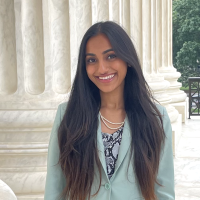

Refugee and Forced Displacement Initiative
The Refugee and Forced Displacement Initiative (RAFDI) provides evidence-based analyses that translate research findings into practice and policy impact. Established in 2022 as a response to an ever-increasing number of people forcibly displaced from their homes by protracted conflicts and persecution, RAFDI aims to expand the space for new perspectives, constructive dialogue and sustainable solutions to inform policies that will improve the future for the displaced people. Read more

